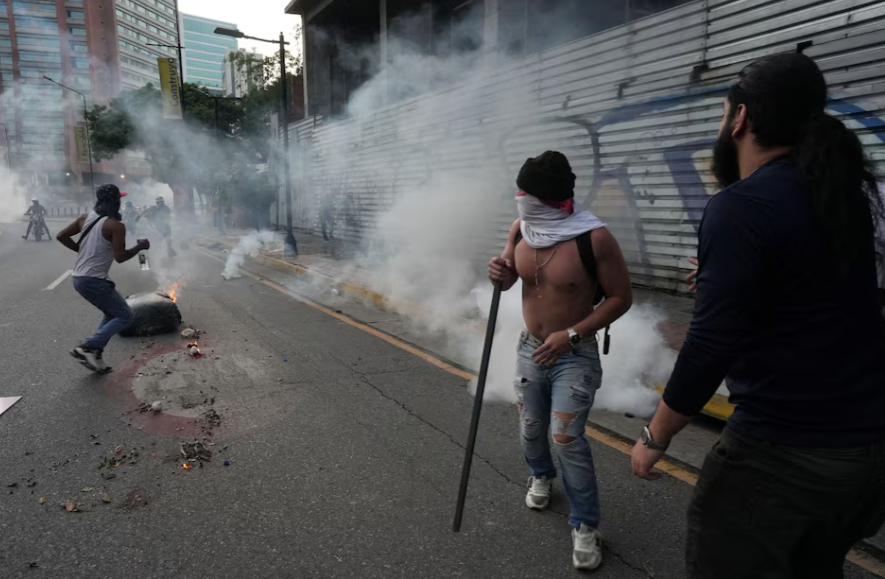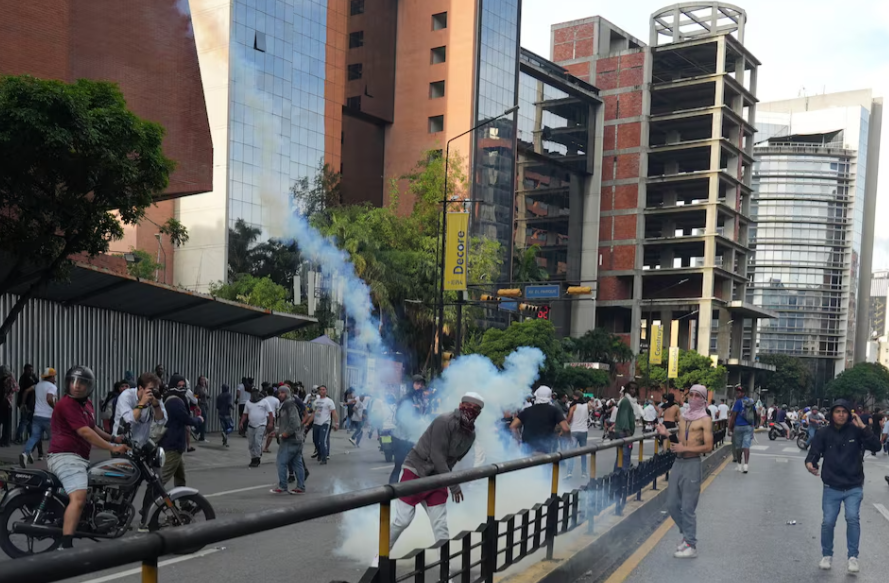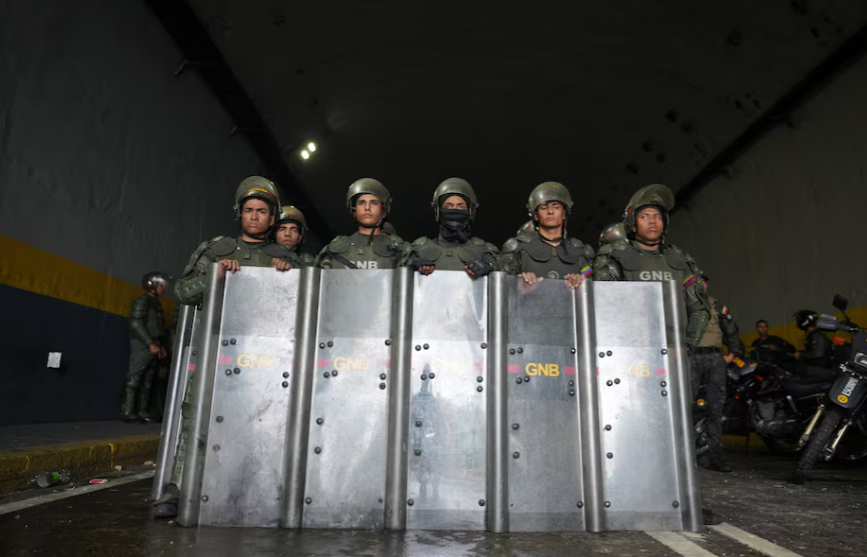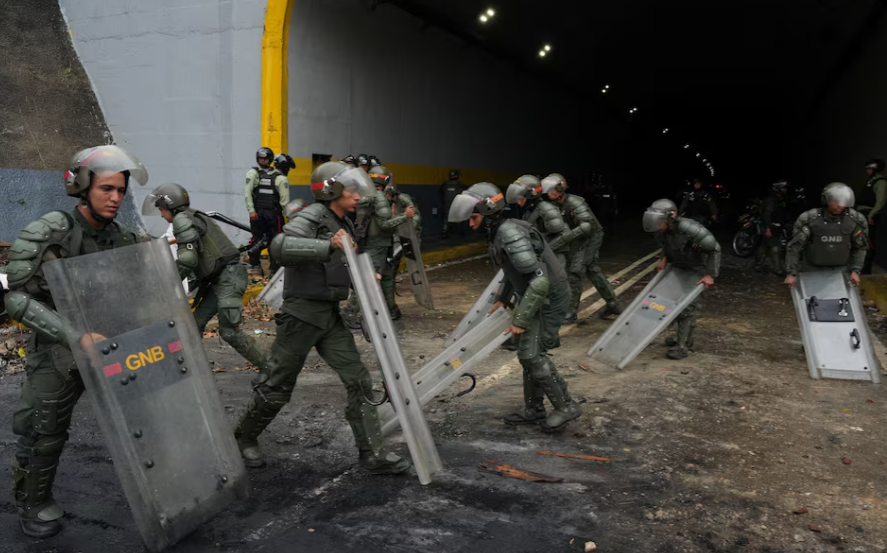Venezuela’s opposition said it was a sign of President Nicolás Maduro’s election victory as anti-government demonstrations broke out across the country, with police in the capital Caracas using tear gas to disperse the protesters.
Protesters took to the streets, including near the Miraflores presidential palace in Caracas, after Maduro declared himself the winner of the disputed election.

Many protesters staged “cacerolazo” demonstrations – a traditional Latin American protest in which people fire pots and pans – across the country. Many people lined up and brought pots and pans.
“We don’t want money, we don’t want CLAP (the government food aid program), we want Nicolás (Maduro) to step down,” the protesters shouted, banging pots. Many people blocked the road on motorbikes, some carrying Venezuelan flags or covering their faces with scarves to protect themselves from the tear gas attacks.

In Caracas, armed police fired tear gas to disperse the crowd, while other police set up barricades with long shields and batons.
In Coro, the capital of Falcon state, demonstrators cheered and danced as they toppled a statue of Maduro’s mentor, late President Hugo Chavez.
Venezuela’s war monitor said 187 protests were recorded in 20 countries at 6 p.m. “I am fighting for democracy in my country,” said one man. “They stole the election from us,” one protester told Reuters. “We must continue to fight for our young people.”
Maduro criticizes right-wing parties
Maduro, speaking directly from the presidential palace, said his military would deal with what he called rebels. The military has supported Maduro for years with no sign that the leader will leave the government.

“We have seen all the violence committed by right-wing groups. “What I can tell the Venezuelan people is that if they hurt us, we will do it,” he said. “We also work with civilians, soldiers and police because we know the movie. We already know how to do it.
Venezuela’s war monitor said “a lot of abuse and violence has been reported by paramilitary groups and security forces.”
At least two people died as a result of the vote counting and protests, one in Tachira district overnight and one in Maracay on Monday.
Defense Minister Vladimir Padrino warned of a repeat of “the terrible conditions of 2014, 2017 and 2019”, when anti-government protests took to the streets with hundreds of people died. Opponents say it’s a sign of victory Election officials announced Monday that Maduro won a third term as president with 51% of the vote, ending a quarter century of socialist rule.

But the opposition said 73% of the available votes gave their candidate Edmundo Gonzalez a clear victory, with two votes over Maduro.
Independent pollsters said Maduro’s claim of victory was not credible, and governments including Washington still doubted the results and demanded a full recount. Uruguayan Foreign Minister Omar Paganini said in an interview with CNN on Monday that the Uruguayan government “doesn’t” recognize Maduro as the winner because the opposition won so decisively.
The Peruvian government asked Venezuelan diplomats in the Andean country to leave the country within 72 hours, citing “important decisions and decisions made today by the Venezuelan government.”Peru is home to one of the largest communities of Venezuelan immigrants, many of whom have left their country in recent years. The Organization of American States said it will meet in Washington on Wednesday to discuss Venezuela’s elections.
There were more street protests
Deposed opposition leader Maria Collina Machado called on her supporters to demonstrate on Sunday in a press release on Monday evening.”Venezuelans, see you tomorrow. “We are a family built to show our commitment to respect all languages and stand for truth,” he said.Jorge Rodriguez, a lawmaker from the ruling party and Maduro’s campaign manager, called on government supporters to come with him to the presidential palace to support the government.
Gonzalez warned of violence, while Rodriguez accused the opposition of inciting violence. Maduro, 61, is a former bus driver and foreign minister who took office in 2013 after the death of President Hugo Chavez. Maduro’s rule has been marked by economic collapse, the displacement of a third of the population, worsening diplomatic relations, and sanctions from the United States, the European Union and other countries that have affected the oil industry collapsed.